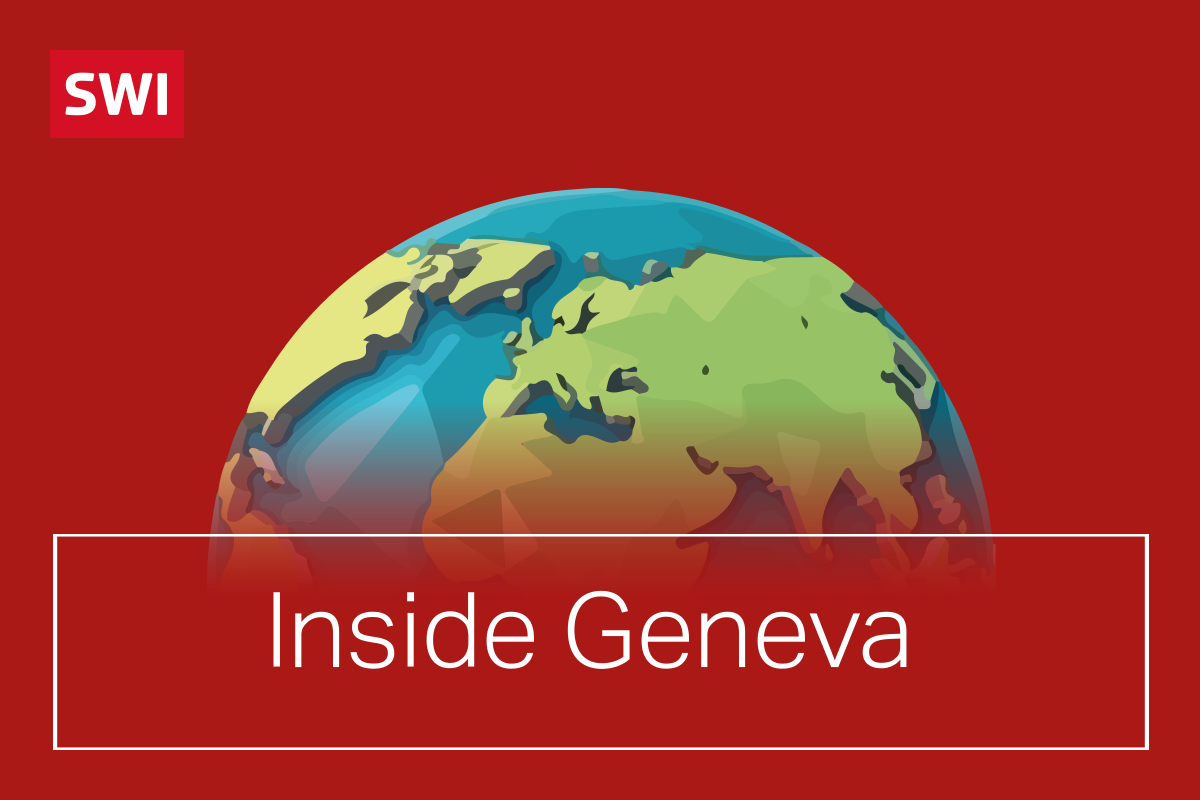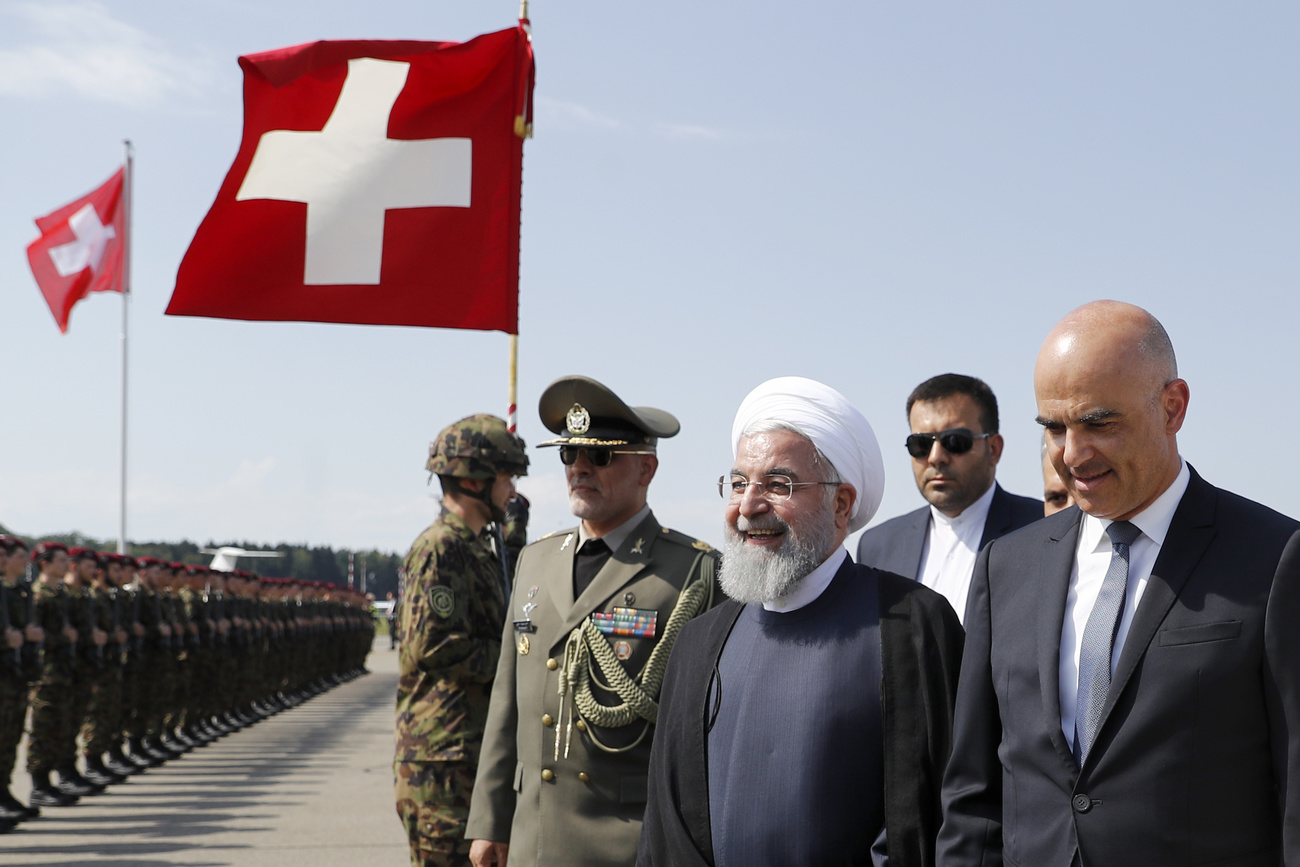
2021 challenges for aid agencies
It’s the last newsletter, and the last Inside Geneva podcast, of the year, and what better people to talk to than the humanitarian community?
Geneva is the capital of humanitarianism; UN Refugees, UN Human Rights, the World Health Organisation, the International Committee of the Red Cross and many more all have their headquarters here.
So what has 2021 been like for aid agencies? We heard last time from journalists in Geneva who told us, not surprisingly, that the continuing Covid-19 pandemic had affected every aspect of their lives, both professional and personal. How then have the aid agencies coped? These are people used to travelling, at a moment’s notice, to parts of the world in conflict, often with little of the infrastructure so many of us take for granted: clean water, electricity, accessible health services.
Back in March 2020, when the pandemic began, Jan Egeland, former UN emergency relief chief and now head of the Norwegian Refugee Council, warned of ‘devastating consequences’ when the virus hit ‘overcrowded settlements in places like Iran, Bangladesh, Afghanistan and Greece.’
Fortunately, those grim predictions have not entirely come true, thanks in large part to the efforts of aid agencies to ensure refugees and others affected by conflict and natural disaster had support to take Covid mitigation measures.
A crisis on top of a crisis
Nevertheless, as Shabia Mantoo of the UN Refugee Agency (UNHCR) told Inside Geneva ‘the pandemic has been a crisis on top of a crisis.’
As 2021 began, Shabia pointed out, all the usual refugee crises were ongoing, from Yemen, to Syria, to Venezuela, to Bangladesh. People in fear of violence and persecution will not stay put because a virus is circulating. When the UNHCR published its annual refugee report this year, it showed that in 2020, the number of people displaced worldwide rose by almost three millionExternal link (totaling 82.4 million of whom 26.4 million were refugees).
And in 2021, refugees had something else to fear as well as the violence they were fleeing, and the risks of catching Covid in an overcrowded camp. “We also saw really drastic measures that were imposed under the pretext of the pandemic,” explained Shabia. “To stop people from claiming asylum you had countries closing their borders without letting those that were in danger access their territory.”
Covid gives inequality a boost
So has the pandemic, and the restrictions placed on all of us, turned us inward, made us more selfish? Rupert Colville of UN Human Rights (OHCHR) also joined our final Inside Geneva of 2021. He believes the pandemic has ‘whacked up inequality’, not only in the most stark example; that in some low income countries nine out of 10 people are still waiting for their first vaccine, but in wealthy countries, where ‘you’re seeing marginalised groups, getting much more affected by Covid, much more likely to catch it, much more likely not to get treatment, basically at higher risk and higher mortality rates.’
And along with all that, there’s the sense, as Shabia mentioned, that the pandemic is allowing governments to chip away at their international obligations, whether it’s the UN convention on refugees (which, incidentally, celebrated its 70th anniversary in 2021), or fundamental human rights. Some governments, the UK among them, have suggested some of human rights conventions may need ‘reform’.
This trend, Rupert Coville told Inside Geneva, is worrying, but he argues it had already started some years before the pandemic. ‘You see the kind of populist rhetoric, and the xenophobia and racism and so on infecting what were supposedly advanced democracies.’
Nevertheless, he believes the conventions we adopted, on human rights, and on refugees, after the second world war, in order, as he puts it ‘to protect ourselves from ourselves, from our worst instincts’, remain strong, And as Shabia points out, many countries do still honour the obligation to grant those in danger asylum, and most of them are in the global south, where 90% of all refugees are hosted. It’s a fascinating podcast, so do tune in and take a listen.

More
2021: a crisis upon a crisis for humanitarian agencies
Don’t forget Afghanistan
Of course, we didn’t neglect the biggest story of the year: Afghanistan. Rupert brought us some fascinating perspectives on the changing face of the Taliban, drawn from his experiences in Afghanistan in the 1990s. And Shabia pointed out that, while the predicted massive outflows of people from Afghanistan didn’t happen, Afghans at home face huge challenges, from unpaid salaries, drought, a cold winter, and public services on the brink of collapse.
Solving all this, she warns, cannot be left to humanitarian agencies whose purpose is to relieve immediate emergency needs. “Humanitarian assistance is one part of the equation and that needs to be supported, but we can’t substitute for the work that’s needed to save the economy, to make sure that people have livelihoods.”
Now that the UN Security Council has agreed a ‘humanitarian exemption’ which allow funds to enter Afghanistan while still bypassing the Taliban, perhaps more of the needs can be met. The situation is more than urgent, as we discuss in our first podcast of 2022, when the ICRC’s Dominik Stillhart tells me about the shockingly high levels of malnutrition among Afghan children.
To conclude then, 2021 has been a challenging year for aid agencies, and more challenging still for the people and communities they try to support. So what are their hopes for 2022?
“I’d just like to see a world where people wake up to the fact that if people were actually nicer to each other,” said Rupert. “It’ll be a better place for all of us to live in.”
“I hope next year we can see a bit more empathy and compassion,” said Shabia. “And we need to be more and more vigilant against dehumanising rhetoric.”
If any of us out there are still choosing our new year’s resolutions, then empathy, compassion, and just being nice to one another might not be a bad place to start.

More
Inside Geneva podcast

In compliance with the JTI standards
More: SWI swissinfo.ch certified by the Journalism Trust Initiative






























You can find an overview of ongoing debates with our journalists here . Please join us!
If you want to start a conversation about a topic raised in this article or want to report factual errors, email us at english@swissinfo.ch.